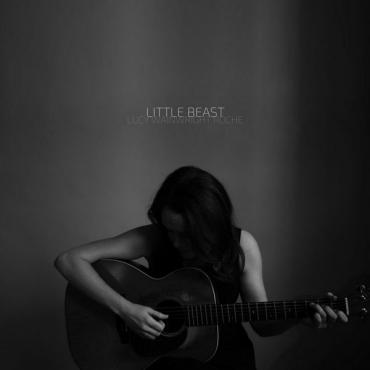The Ravages of That Little Beast within Us

The title track of Lucy Wainwright Roche’s stunning new album, Little Beast, floats sparely along the pure, yet, cleansing guitar chords of producer Jordan Brooke Hamlin as Roche’s heart-rending vocals flow on top of them. The ethereal beauty of the track masks the tangled emotions that lie at the song’s heart. The little beast within us — our hearts wrenched by broken relationships or devastating loss, our souls torn by perversity and unrequited desire — drives us, and no matter how hard we try to leash this little beast, we never can: “Tied up right where we left you / while the summers and the winters came / that silly leash was never strong / enough to hold you / we just all agreed to play this game.”
Little Beast hauntingly traverses the ragged desolation of brokenness, the despair over the emptiness of life and love, the wonder and the hope of yet another road trip, the beauty of love and the ache of losing it, and the fear of sinking into a social miasma and feeling the loss of control and hope. Recognizing that most of us live through our hopes and fears quietly, never announcing them with grand, clashing chords, Roche evokes these states of our lives with quiet tunes, backing her words with only guitar and piano on many of the tracks. She’s joined on the record by Hamlin on guitar, piano, pedal steel, bass, and percussion; Emily Saliers on guitar; Matthew Perryman Jones on vocals; Helen Vaskyvitch and Amy Ray on vocals; Claire Indie on cello; and Tyler Osmond on bass.
“Quit with Me” opens with somber piano chords before building layer-by-layer into a melancholy ballad in which two lovers recognize that they can’t go on together, no matter how the dimly the light of love still glows. The song begins quietly, builds into a climactic moment when hope still exists, and then quietly moves on with mutual acceptance of the end of the relationship. The natural imagery of the lyrics captures the transcendent character of the relationship — “we came to be amidst a verdant giant galaxy / that kept the lights on bright” — just as the physical, bodily imagery of the closing lines captures the bruising loss the lovers feel — “there is no closer we will grow to be / you are a burning bleeding part of me / one thing I know is true / the path I walk was laid by you / quit with me.”
Roche’s mostly a cappella delivery — Hamlin’s electric guitar hums quietly in background — on “Fifth of July” captures the conflicted feelings of living in a country that celebrates freedom with the excesses of picnics—“burgers and beer” — but fails to embrace the very promise of freedom, hope, justice, or equality that people so fiercely celebrate. On the fifth of July, we’re still a country divided into the haves and have nots, with a political administration that counts lying as truth and warring as peace.
The shimmering chords of piano and guitar on “Heroin” mimic the illusions that come with addiction, whether to drug or a shattered love — the momentary ecstasy, the lengthy fugue state, the pain of withdrawal: “but some drives I’ve been due to take /aren’t survivable or advisable / it’s how I had to leave / it’s how I longed to stay / it’s some things that I wanna say / like happy birthday heroin but god how I loved you.”
Little Beast contains moments that recall the raw emotion of Laura Nyro’s New York Tendaberry and the joy and acceptance of brokenness of her mother’s and her aunts’ album A Dove. Roche’s haunting and ethereal vocals fill the album with a soaring emotional quality that touches us on every song, and her poignant lyrics reveal her moving and ingenious songwriting.




